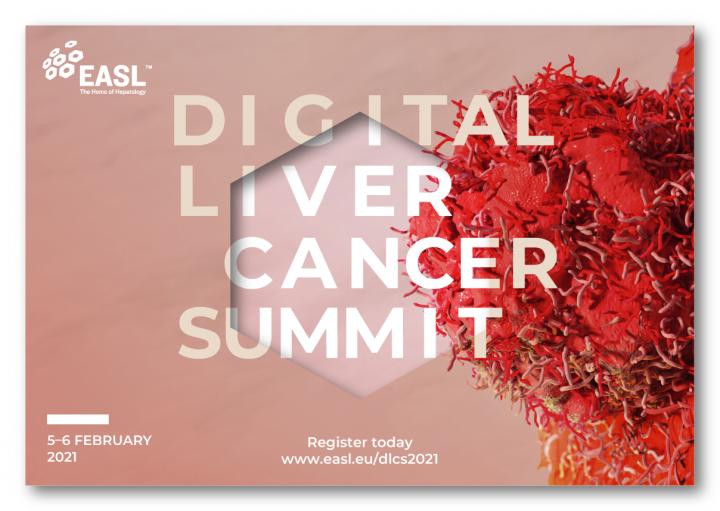The IMbrave150 trial found median overall survival was 19.2 months in patients treated with atezo+bev vs 13.4 months for those treated with sorafenib alone, the current standard treatment

Credit: EASL
6 February: The IMbrave150 trial found median overall survival was 19.2 months in patients treated with atezo+bev vs 13.4 months for those treated with sorafenib alone, the current standard treatment (HR, 0.66 [95% CI, 0.52-0.85]; P=0.0009). Survival at 18 months was 52% with atezo+bev and 40% in patients treated with sorafenib.
All patients in the trial had nonresectable HCC – the most common form of liver cancer – and had not previously been treated with systemic therapy. A total of 501 patients were treated in the multicentre, open label, randomised controlled trial and the new follow-up figures confirm the superiority of the atezo+bev combination over sorafenib in this group of patients with HCC.
Atezolizumab is an immune checkpoint inhibitor drug, which helps the immune system hunt down and destroy cancer. Bevacizumab is a targeted monoclonal antibody therapy that starves tumours of their blood supply by preventing endothelial growth but also enhances the immune effects of atezolizumab.
The new data, presented today at the European Association for the Study of the Liver (EASL) Liver Cancer Summit 2021, follows the initial publication of trial data[i] with 8.6 months of follow-up which found survival at 12 months was 67.2% with atezo+bev, compared to 54.6% in those treated with sorafenib. This new post-hoc descriptive overall survival analysis included 12 months of additional follow-up from the primary analysis.
Prof. Richard Finn, lead author of the study, commented, “IMbrave150 showed consistent clinically meaningful treatment benefit and safety with an additional 12 months of follow-up. The combination provides the longest survival seen in a front-line Phase III study in advanced HCC, confirming atezo+bev as a standard of care for previously untreated, unresectable HCC.”
“These are highly significant findings for the treatment of patients with HCC. Many thousands of patients worldwide could benefit from this treatment and it can be considered a major breakthrough – the first improvement in treatment for these types of cases in 13 years and a treatment long awaited by doctors.”
The trial enrolled systemic treatment-naive patients with unresectable HCC, ?1 measurable untreated lesion (RECIST 1.1), Child-Pugh class A liver function and ECOG PS 0/1. Patients were randomised 2:1 to atezo 1200 mg IV q3w + bev 15 mg/kg IV q3w or sorafenib 400 mg bid until unacceptable toxicity or loss of clinical benefit per investigator. Patients were required to have an upper endoscopy within 6 months of starting the study, to assess for high-risk varices.
Survival benefit with atezo+bev vs sorafenib was generally consistent across subgroups and with the primary analysis. The updated objective response rate (ORR; 29.8% per RECIST 1.1) with atezo+bev was in line with the primary analysis, with more patients achieving complete response (CR; 7.7%) than previously reported. Safety was consistent with the primary analysis, with no new signals identified.
“We now need to understand what is next in front-line liver cancer and how will we build on this data to further improve outcomes beyond the 19.2 months we described. Additionally, we need to evaluate the efficacy for this regimen in earlier stages of HCC.”
###
About Digital Liver Cancer Summit 2021
The two-day Digital Liver Cancer Summit 2021, building on EASL’s success of Digital International Liver Congress™ 2020, puts delegates at the forefront of research, development, and strategies for treating patients. In a dynamic, exciting, interactive, digital environment.
Join Digital Liver Cancer Summit 2021 to get the absolute latest on basic, translational, and clinical data – including on hepatocellular carcinoma, cholangiocarcinoma, and rare primary liver cancers. The comprehensive updates offered at the summit will directly impact future clinical practice worldwide, because all the new data related to clinical trials will be presented to participants and discussed intensely. Digital Liver Cancer Summit 2021 is taking place 5-6 February 2021.
For more information on attendance and registration, please visit https:/
About the European Association for the Study of the Liver (EASL)
EASL, the European Association for the Study of the Liver, founded in 1966, is a medical association dedicated to pursuing excellence in liver research, to the clinical practice of liver disorders, and to providing education to all those interested in hepatology. As of 2021, EASL serves more than 4,200 members.
EASL engages globally with all stakeholders in the field of hepatology, worldwide. Our aim is to spread knowledge and expertise in best practices and the latest scientific breakthroughs in this field. We advocate for the benefit of patients and advise European and national health authorities. EASL runs topical conferences, schools, and related educational meetings. Our journals, the Journal of Hepatology and JHEP Reports, provide an international forum for the publication of original articles, reviews, and letters to the Editor, describing the latest science in hepatology. Our eLearning hub, EASL Campus, offers more than 4,100 resources on hepatology and liver research. For more information, visit https:/
EASL’s flagship event, the International Liver Congress™ is taking place over four days, 23-26 June 2021. Members of the press are invited to make contact. For more information visit https:/
Contact
For more information, please contact the EASL Press Office at:
– Email: [email protected]
– Telephone: +44 (0) 208 154 6396
References
[i] Finn et al. Atezolizumab plus Bevacizumab in Unresectable Hepatocellular Carcinoma . N Engl J Med 2020;382:1894-905. DOI: 10.1056/NEJMoa1915745
Media Contact
Sean Deans
[email protected]



